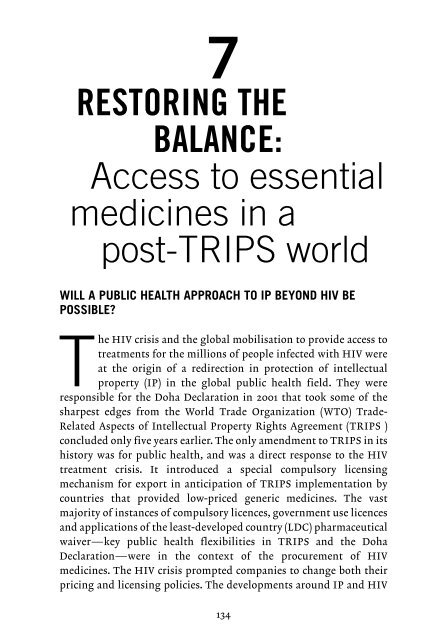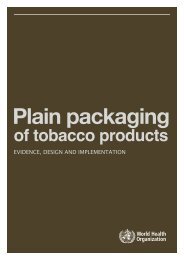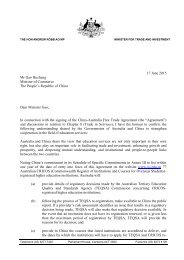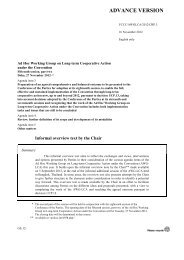PRIVATE PATENTS AND PUBLIC HEALTH
private-patents-and-public-health
private-patents-and-public-health
Create successful ePaper yourself
Turn your PDF publications into a flip-book with our unique Google optimized e-Paper software.
7<br />
RESTORING THE<br />
BALANCE:<br />
Access to essential<br />
medicines in a<br />
post-TRIPS world<br />
WILL A <strong>PUBLIC</strong> <strong>HEALTH</strong> APPROACH TO IP BEYOND HIV BE<br />
POSSIBLE?<br />
The HIV crisis and the global mobilisation to provide access to<br />
treatments for the millions of people infected with HIV were<br />
at the origin of a redirection in protection of intellectual<br />
property (IP) in the global public health field. They were<br />
responsible for the Doha Declaration in 2001 that took some of the<br />
sharpest edges from the World Trade Organization (WTO) Trade-<br />
Related Aspects of Intellectual Property Rights Agreement (TRIPS )<br />
concluded only five years earlier. The only amendment to TRIPS in its<br />
history was for public health, and was a direct response to the HIV<br />
treatment crisis. It introduced a special compulsory licensing<br />
mechanism for export in anticipation of TRIPS implementation by<br />
countries that provided low-priced generic medicines. The vast<br />
majority of instances of compulsory licences, government use licences<br />
and applications of the least-developed country (LDC) pharmaceutical<br />
waiver — key public health flexibilities in TRIPS and the Doha<br />
Declaration — were in the context of the procurement of HIV<br />
medicines. The HIV crisis prompted companies to change both their<br />
pricing and licensing policies. The developments around IP and HIV<br />
134






